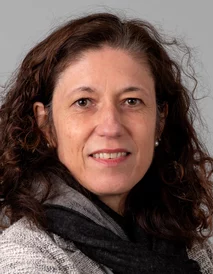Persecution, Protection and Relocation Due to Fear of Cults in Nigeria - BL [2002] UKIAT 01708 (CG)
by Katia Bianchini
Question(s) at stake
Was it correct for the adjudicator to grant asylum to BL, the respondent, due to his fear of being persecuted for his refusal to join the Aro cult? In particular, (1) did the persecution fall within one of the Refugee Convention grounds (i.e., political opinion, race, religion, nationality, membership in a particular social group)? (2) was internal protection possible for BL? (3) was internal relocation possible for BL?
Outcome of the ruling
The appeal was allowed and the Immigration Appeal Tribunal ruled that the adjudicator was correct in granting asylum to the respondent: (1) persecution did not fall under one of the Refugee Convention grounds; (2) internal protection was possible; (3) internal relocation was possible.
Country:
United Kingdom
Official citation
BL (Ogboni Cult – Protection – Relocation) Nigeria CG [2002] UKIAT 01708
Topic(s)
Keywords:
Grounds/Reasons of persecution
Membership of a particular social group
Refugee status
Asylum seeker
Religion or belief
Internal relocation alternative
Tag(s):
Witchcraft
Bibliographic information
Bianchini, Katia (2024):
Persecution, Protection and Relocation Due to Fear of Cults in Nigeria - BL [2002] UKIAT 01708 (CG),
Department of Law and Anthropology, Max Planck Institute for Social Anthropology, Halle (Saale), Germany,
CUREDI013UK010,
https://doi.org/10.48509/CUREDI013UK010.
About the authors
Katia Bianchini (Max Planck Institute for Social Anthropology, Department Law and Anthropology, Germany)


Katia Bianchini is a Research Fellow of the Law and Anthropology Department of the Max Planck Institute for Social Anthropology in Halle. She holds a law degree from the University of Pavia (Italy), an LL.M. in Comparative Laws from the University of San Diego (California, USA), and a Ph.D. in Law from the University of York (UK). Her doctoral thesis provided an empirical and legal analysis of how the 1954 UN Convention relating to the Status of Stateless Persons is implemented in ten EU states. She has also worked as a Post-Doctoral Researcher at the Max Planck Institute for the Study of Religious and Ethnic Diversity (Göttingen). Before engaging in research, she practised immigration and refugee law for ten years in the UK and the USA.
Bianchini has published in the field of refugee law, statelessness, and the rule of law in the context of sea migration. Her current research builds on her expertise in human rights and Italian law and looks at the treatment of deceased sea migrants in the South of Italy.
